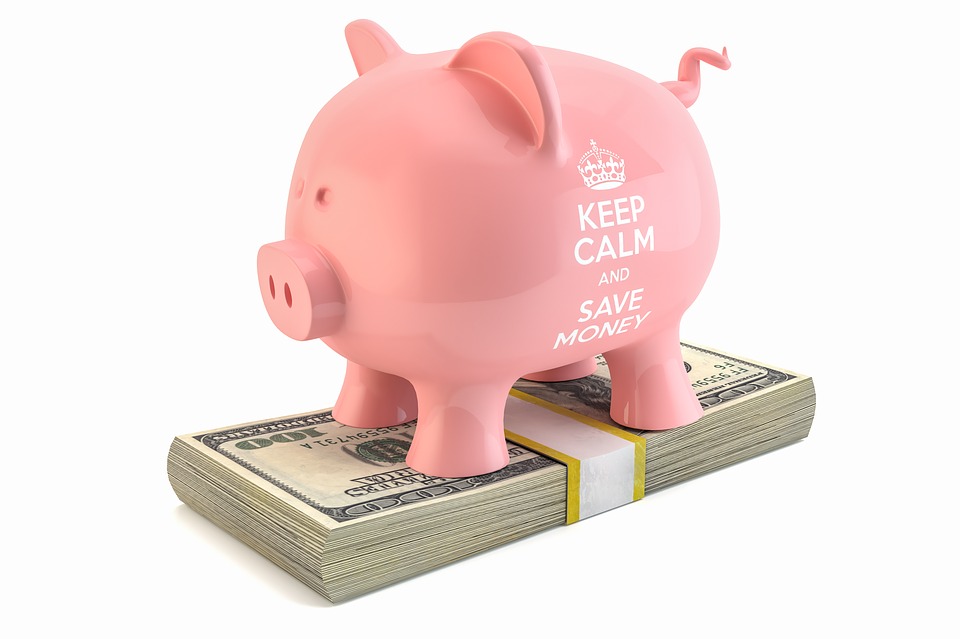
“How many millionaires do you know who have become wealthy by investing in savings accounts? I rest my case.” – Robert G. Allen. While financial gurus like Chris Hogan, Dave Ramsey, & others agree that nobody gets rich by redeeming credit card points, the same is true of interest earned on from savings accounts. That said, this is a post on maximizing savings – not investing.
Through 2018, I had my 6-month emergency fund and house down payment fund sitting in my checking account at my traditional bank earning close to 0% interest. Given my needs for these funds to be completely risk averse (IE no stock market) and completely accessible (IE no CDs), I hadn’t even considered other ways to earn some extra money on these savings.
It was only at the start of 2019 that I made some changes and earned $1,693 through simply switching accounts.
First, some context:
Inflation Erodes Savings
Traditional Checking, Savings, & Money Market Account Balances Don’t Keep Up With Inflation
Like most people, I have a checking account at a large bank. I enjoy the security of knowing my money is FDIC insured up to $250,000 and that I can always access an ATM or visit a bank branch wherever I travel.
These are great benefits, but the problem with having a large chunk of cash in traditional checking and savings accounts is that it earns virtually no interest, and whatever interest is earned gets eroded through inflation.
The Fed’s target inflation rate is 2% per year. In other words, our government is planning for our money to lose 2% of its value each year.
In May of 2019, the FDIC reported the average interest-bearing checking account produces 0.06% APY, the average Savings account produces 0.09% APY, and the average Money Market account produces 0.18% APY.
Assuming these interest rates and the Fed’s 2% annual inflation target, money will lose some of its value each year it’s in an average checking, savings, or money market account.
Combat Inflation
To both combat inflation and earn a few extra bucks, I’ve found these 2 steps helpful:
Step 1:
Move your money to FDIC-insured high-interest-bearing accounts. There are several online banks offering rates of 2.1% APY or higher for money market accounts – often, with no minimum required balance. This is over 20 times greater than the national average interest rates mentioned earlier.
Step 2:
Switch accounts 1-3 times per year. Moving money around to capitalize on bank incentives can be quite lucrative. There are bonuses ranging from $100 – $750 in exchange for opening a new account at various FDIC-insured online and traditional banks. This is not like opening a credit card, as opening bank accounts doesn’t impact your credit score.
The conditions around receiving these sign-on bonuses vary, but oftentimes, you must:
- Meet the criteria for a minimum deposit, which is typically between $3,000 – $75,000.
- Keep your money in that account for at least 60 days.
- Setup monthly direct deposits flowing into that account during a specified timeframe.
After conditions like these are met, the bank simply deposits the sign-on bonus into your account. At the end of the year, they send the IRS tax form 1099-MISC and this bonus will be reported as taxable income.
Some examples of these offers can be found HERE, with select screenshots below:



Step 3:
Repeat step 2. Typically, banks prohibit their current customers from participating in their sign-up incentives. Also, from what I’ve read in the fine print, any current/ previous customers from the last 12-24 months are usually not eligible.
I recently began opening and closing accounts every few months. I figure that after 12-24 months of closing an account with 1 bank, I will be eligible to open a new account with them and receive another sign-on bonus.
Key Takeaway
- Open an account with a sign-up bonus in an amount that is worthwhile (IE a bonus of $100 isn’t worth my time)
- Fulfill the criteria to receive the sign-up bonus.
- Once the sign-up bonus is deposited into the account, close the account and move the money to another new account that has a sign-up bonus.
Opening high-interest-bearing money market accounts and participating in new bank account sign-up bonuses won’t make anybody rich. What it will do is help enable emergency funds and other savings to not lose value due to inflation. It will also enable you to earn a few extra bucks. In my case, I made $1,693 in 2019 by simply moving money from one place to another.
Affiliate Disclosure: As an Amazon Associate, I earn from qualifying purchases.
Enter your email in the “Subscribe” box to receive the latest Financial Thriving blog post.
SMS
business
ecommerce
poker online
Daftar Qq online